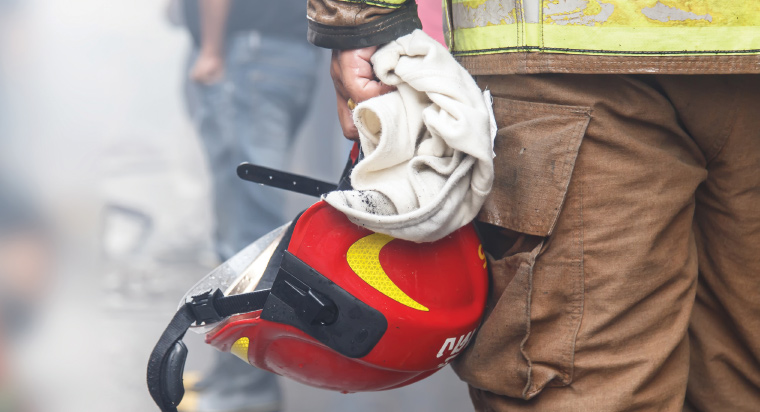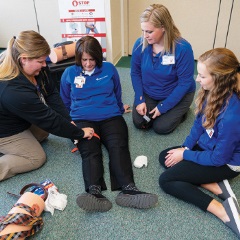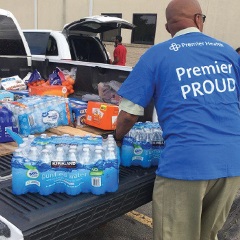Prepared to Respond

When catastrophes strike a community, people often look to first responders for help. In the wake of tragedies in the Miami Valley this year, victims had to rely on people beyond paramedics and law enforcement officers when seconds could make the difference between life or death.
That was especially true on Aug. 4 as a gunman opened fire in Dayton’s Oregon District. In about 32 seconds, nine people were killed and 32 more injured. Dayton Police officers jumped into action, using life-saving methods to keep gunshot victims alive.
During the initial response to this shooting, the area was considered a ‘hot zone,’” said Amanda Pulfer, MSN, RN, trauma outreach coordinator at Miami Valley Hospital. “This prevents paramedics and EMTs from coming on scene due to the active nature and potential safety threat of the situation.”
The mass shooting underscores the importance of citizen response in emergency events that require swift action. In 2017, Premier Health began offering Stop the Bleed training, a national awareness campaign to encourage communities to become equipped and empowered to help in a bleeding emergency before professional help arrives. The program provides public access to bleeding control tools and life-saving techniques. In its first two years, Premier Health trainers educated 2,593 police officers, first responders, and community members through Stop the Bleed.

“It doesn’t matter whether you’re a teacher, accountant, or taxi driver, there may come a time when you will need to provide care to someone in need,” Pulfer said. “There are incidents like the Oregon District shooting when you cannot wait for medical personnel to respond to the scene and you become the first responder.”
Since the general population doesn’t usually have access to commercial tourniquets, Premier Health trainers challenge civilians to assess their surroundings for makeshift items, like T-shirts and belts.
“This program isn’t just for mass shootings and large-scale events,” said Ann Monnig, MSN, RN, trauma program manager at Miami Valley Hospital. “Stop the Bleed teaches people the proper ways to aid someone injured by something as common as cutting vegetables or a fall.”
The Stop the Bleed trainers also reach other parts of the community, including county employees, school staff and students, manufacturers, farmers, retirement and assisted living facilities, and the Dayton International Airport.
We do not want people being afraid,” said Monnig. “The tools they learn from the Stop the Bleed program can only help.”
Disaster Relief

On Memorial Day, 15 tornadoes ripped through the Miami Valley and resulted in more than 420 reported storm-related injuries, with 245 patients treated at Premier Health hospitals. Just hours after the last tornado dissipated, efforts by the health system were underway to support victims.
A $10,000 community benefit fund was allocated to help those who lost everything, providing relief that included necessities for mothers and babies; hot meals and snacks for victims and volunteers; and funding for the relief efforts of area agencies, such as the Wesley Center, St. Margaret’s Episcopal Church, and the Drew Health Center, to name just a few. Within the Premier Health family, more than $100,000 was donated to the health system foundations’ Employee Catastrophic Fund by employees, board members, and others to provide more than 350 affected employees with up to $1,000 in assistance and gift cards, plus two weeks of pay without having to use their time off bank.

